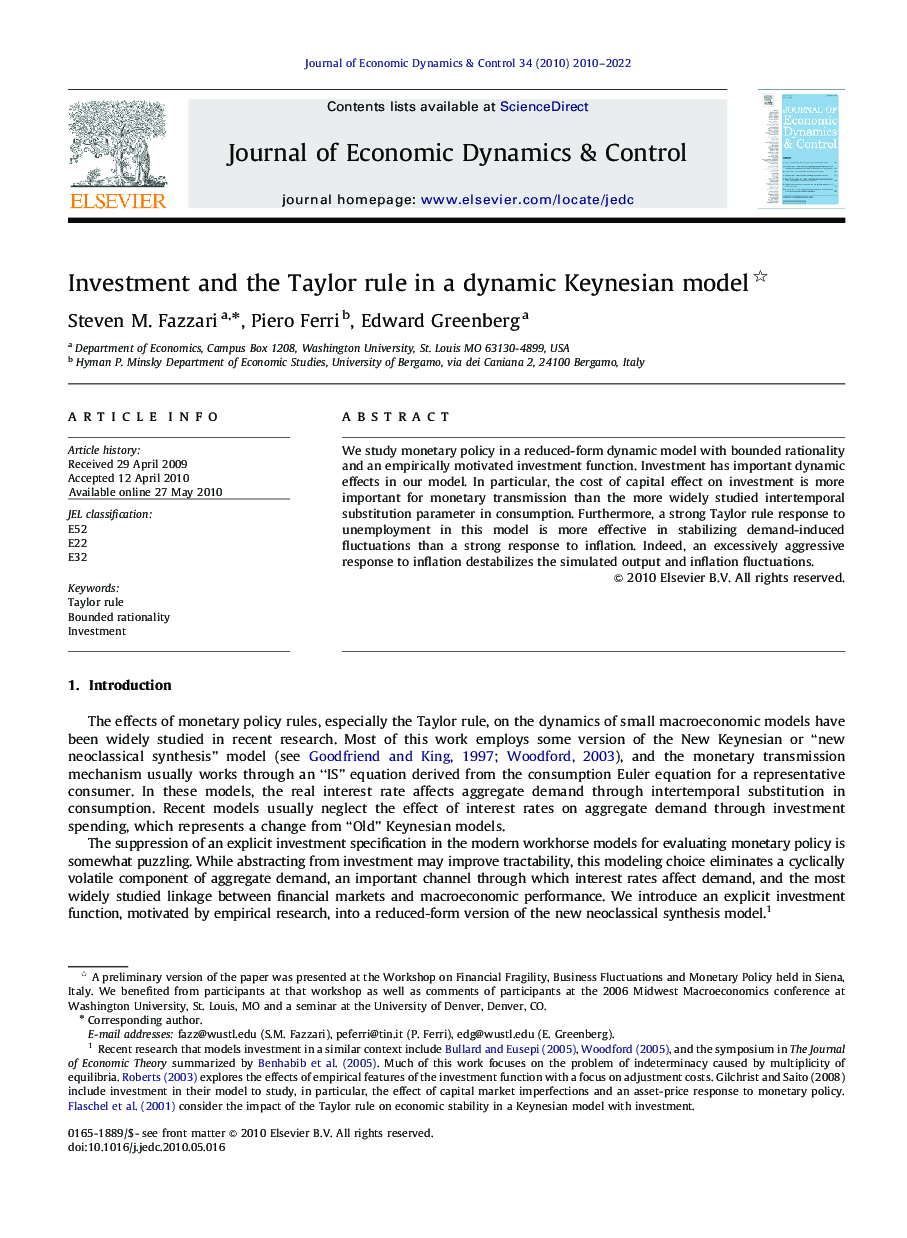| Article ID | Journal | Published Year | Pages | File Type |
|---|---|---|---|---|
| 5099669 | Journal of Economic Dynamics and Control | 2010 | 13 Pages |
Abstract
We study monetary policy in a reduced-form dynamic model with bounded rationality and an empirically motivated investment function. Investment has important dynamic effects in our model. In particular, the cost of capital effect on investment is more important for monetary transmission than the more widely studied intertemporal substitution parameter in consumption. Furthermore, a strong Taylor rule response to unemployment in this model is more effective in stabilizing demand-induced fluctuations than a strong response to inflation. Indeed, an excessively aggressive response to inflation destabilizes the simulated output and inflation fluctuations.
Related Topics
Physical Sciences and Engineering
Mathematics
Control and Optimization
Authors
Steven M. Fazzari, Piero Ferri, Edward Greenberg,
